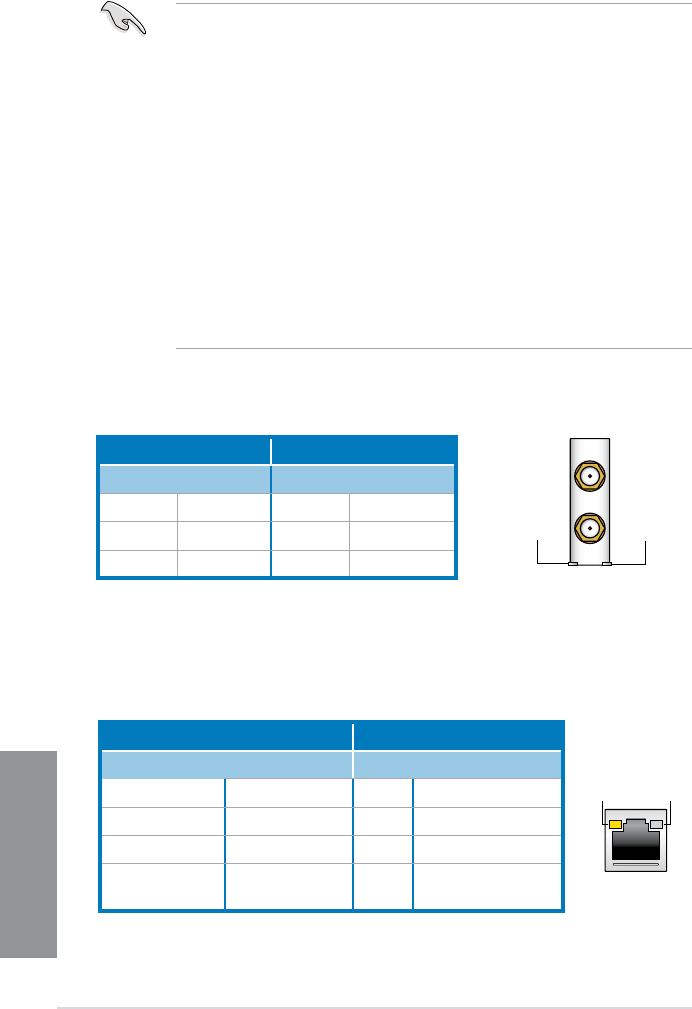
2-14
Chapter 2: Basic installation
Chapter 2
• The plugged USB 3.0 device may run on xHCI mode or EHCI mode, depending on the
operating system’s setting.
• USB 3.0 devices can only be used as data storage only.
• We strongly recommend that you connect USB 3.0 devices to USB 3.0 ports for faster
and better performance for your USB 3.0 devices.
• Due to the design of the Intel
®
8 series chipset, all USB devices connected to the
USB 2.0 and USB 3.0 ports are controlled by the xHCI controller. Some legacy USB
devices must update their rmware for better compatibility.
• Multi-VGA output supports up to three displays under Windows
®
OS environment, two
displays under BIOS, and one display under DOS.
• Intel display architecture design supports the following maximum supported pixel
clocks (Pixel Clock = H total x V Total x Frame Rate (Fresh screen rate)):
- Thunderbolt port: 533 MHz
- HDMI port: 300MHz
** LAN ports LED indications
ACT/LINK
LED
SPEED
LED
LAN port
Activity Link LED Speed LED
Status Description Status Description
Off
No link Off 10 Mbps connection
Orange
Linked Orange 100 Mbps connection
Orange (Blinking)
Data activity Green 1 Gbps connection
Orange (Blinking
then steady)
Ready to wake up
from S5 mode
*Bluetooth and Wi-Fi module LED indications
Wi-Fi 802.11 a/b/g/n/ac,
Bluetooth v4.0/3.0 + HS
Wi-Fi LED Bluetooth LED
Status Description Status Description
Off No link Off No link
Green Linked Blue Linked
Blinking Data activity
Wi-Fi
LED
Bluetooth
LED
* The Bluetooth word mark and logos are owned by Bluetooth SIG, Inc. and any use of such mark by ASUSTeK
Computer Inc. is under license. Other trademarks and trade names are those of their respective owners.


















